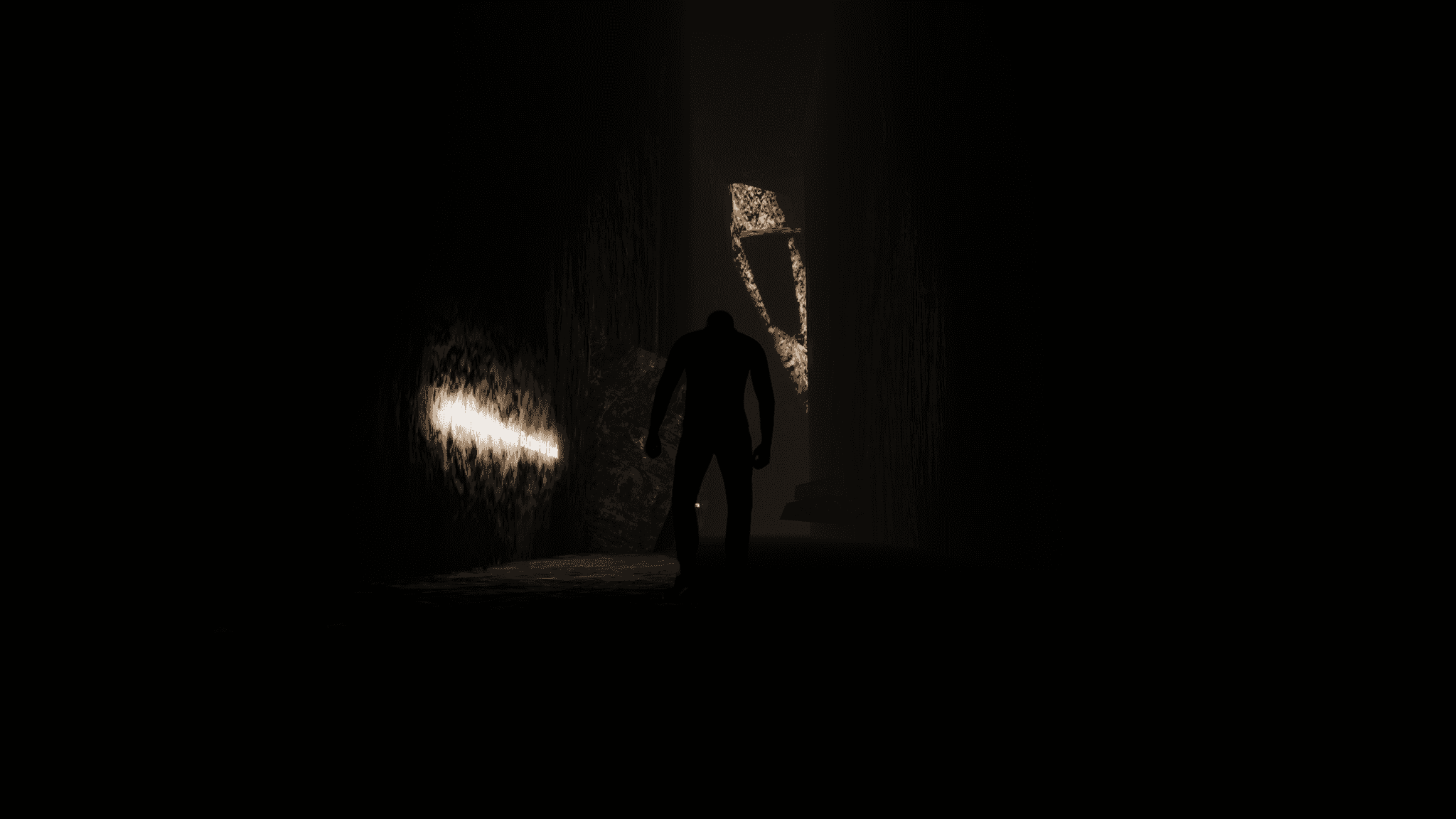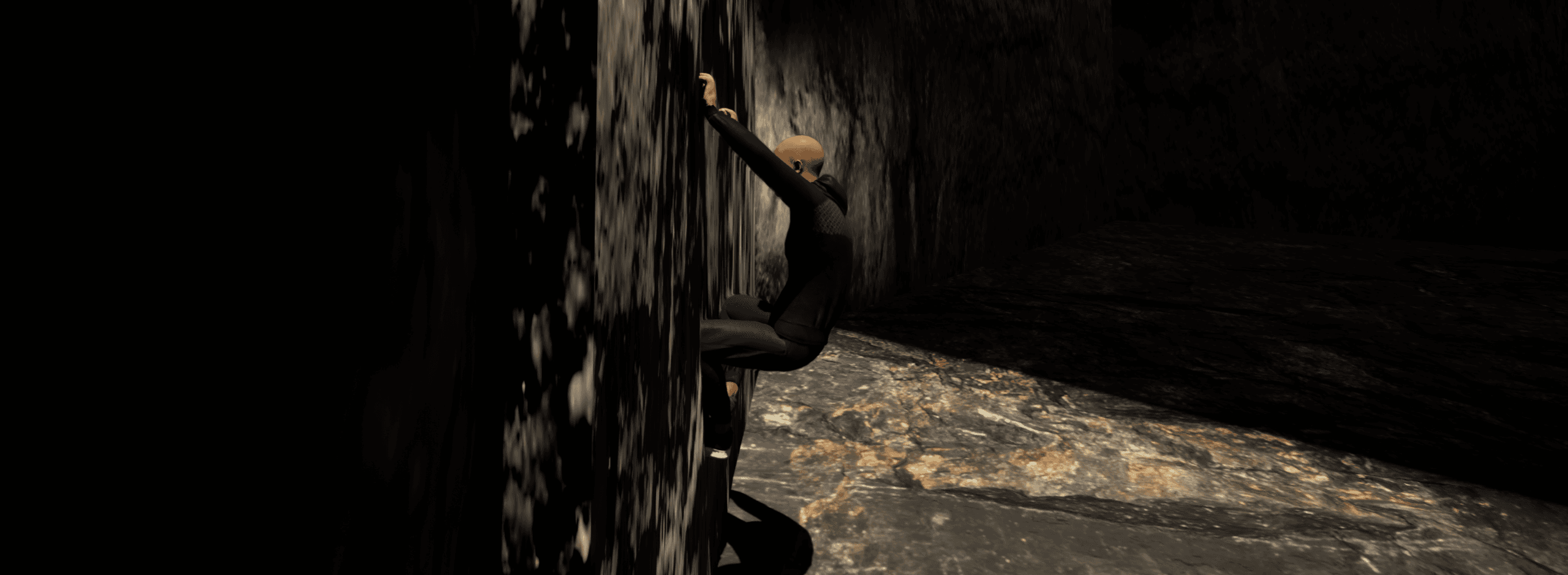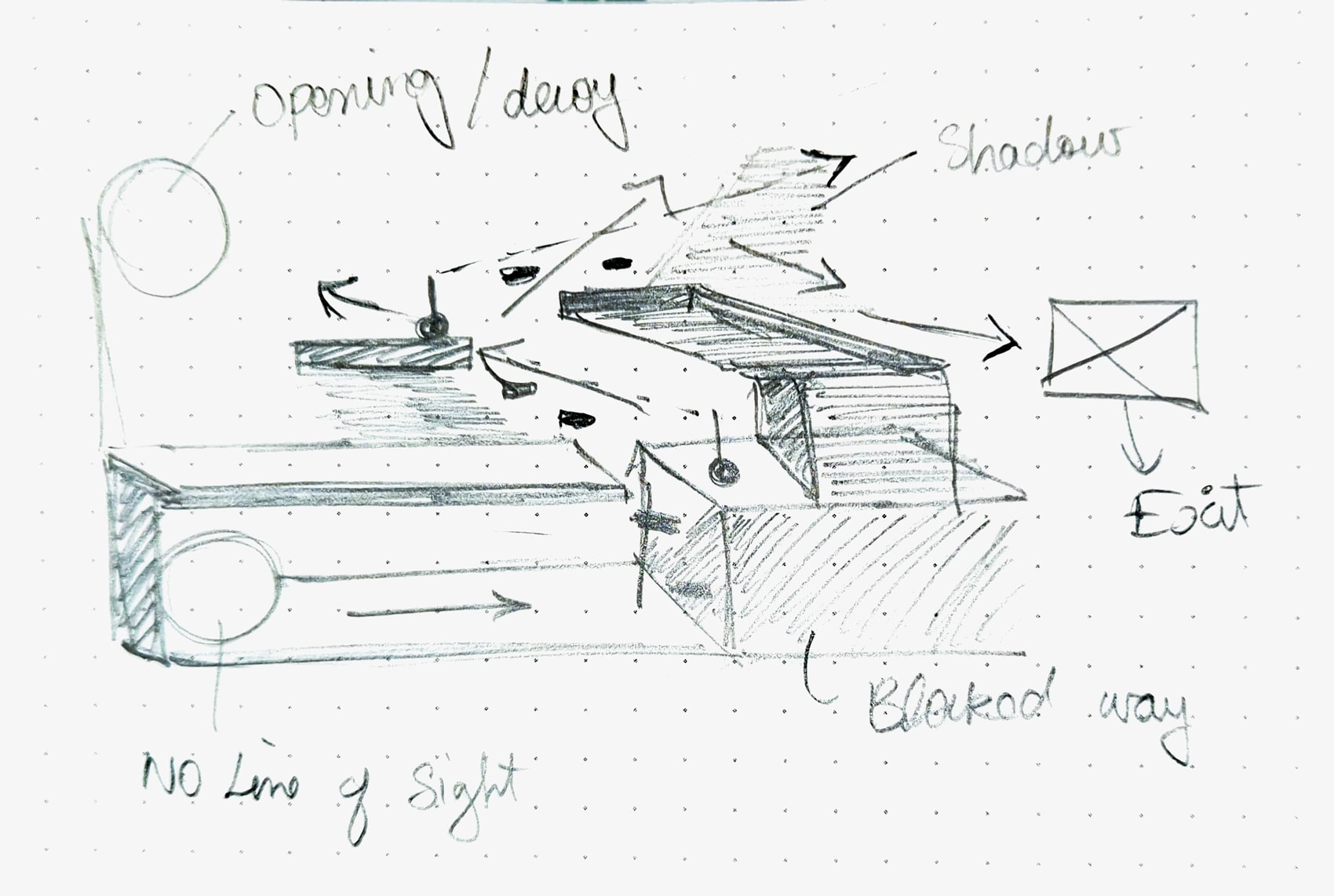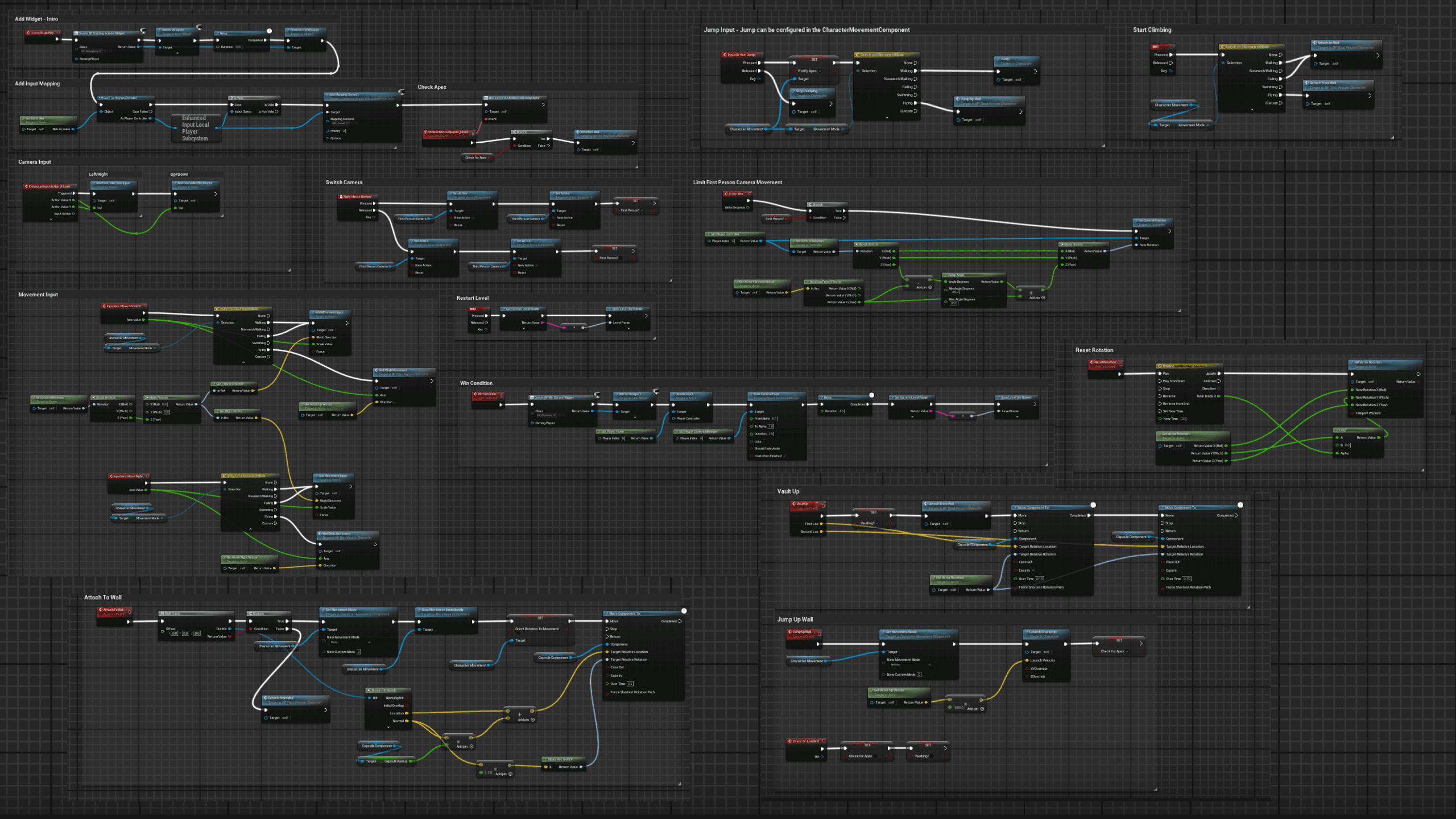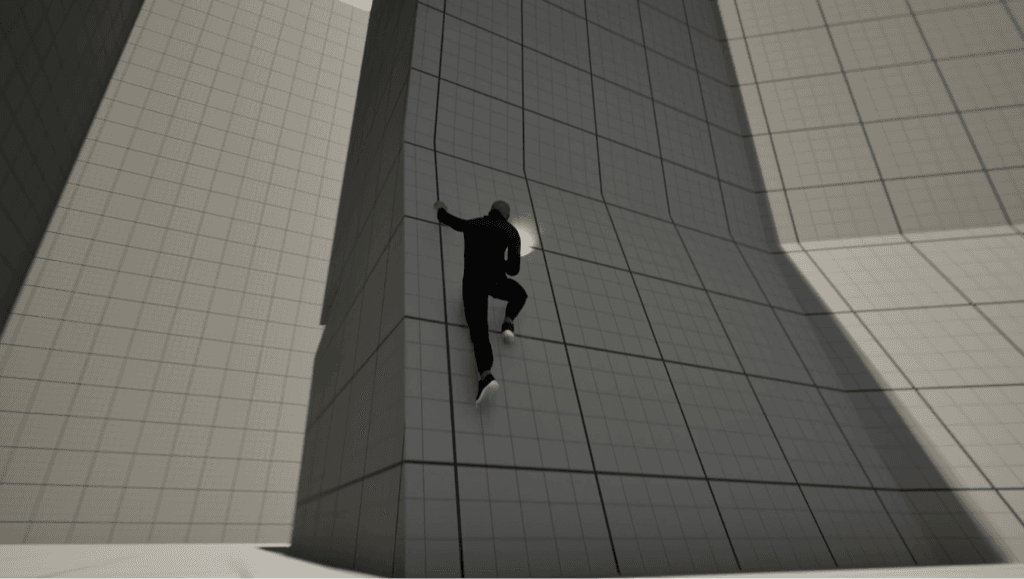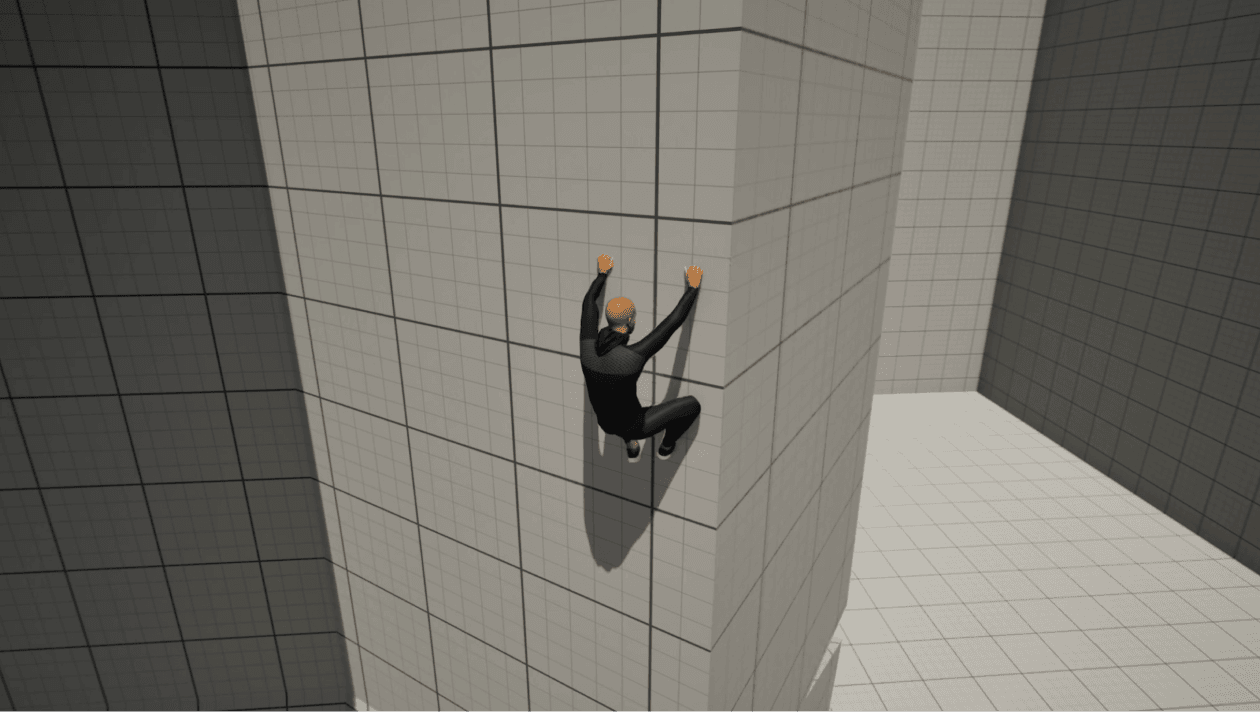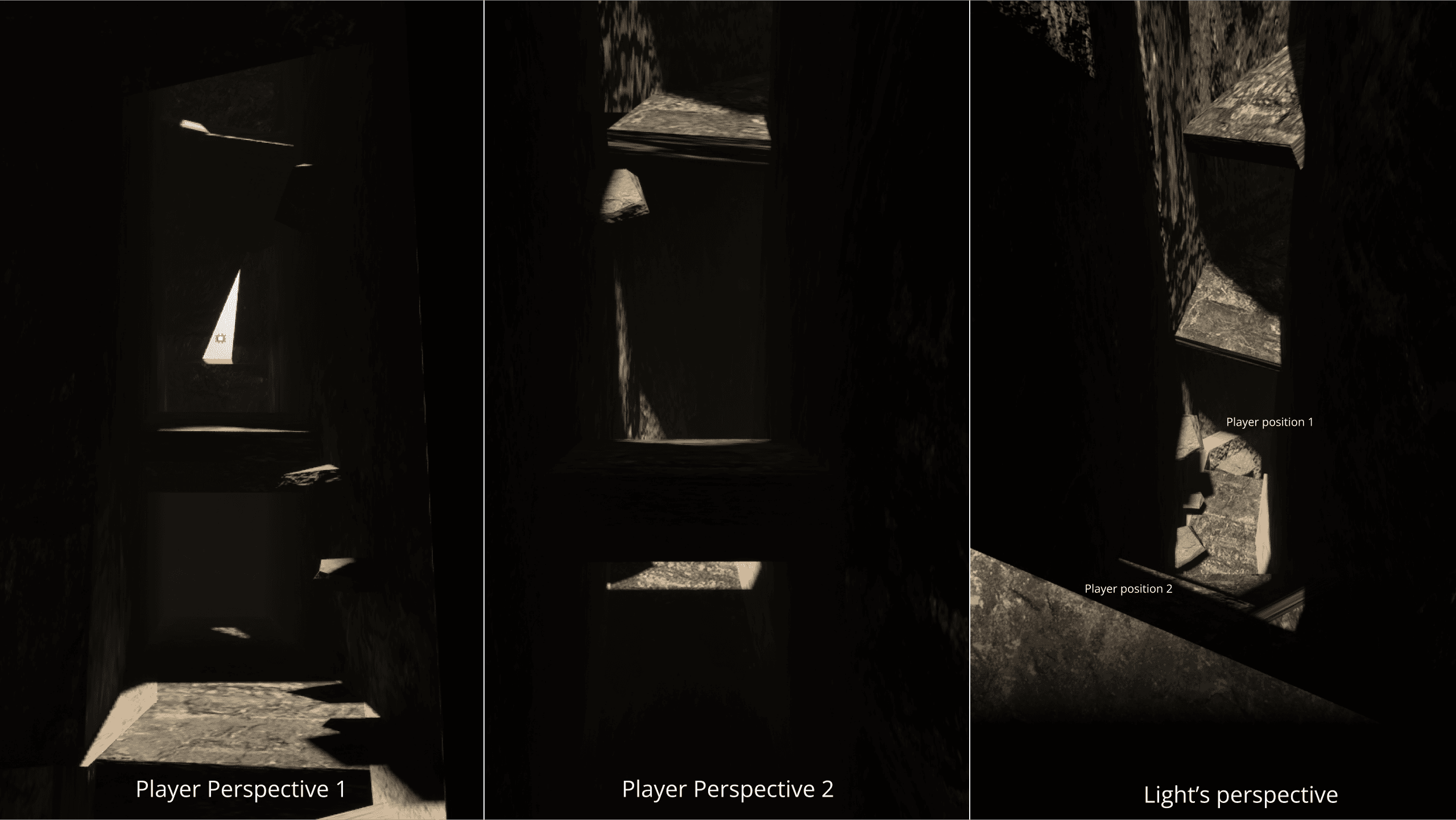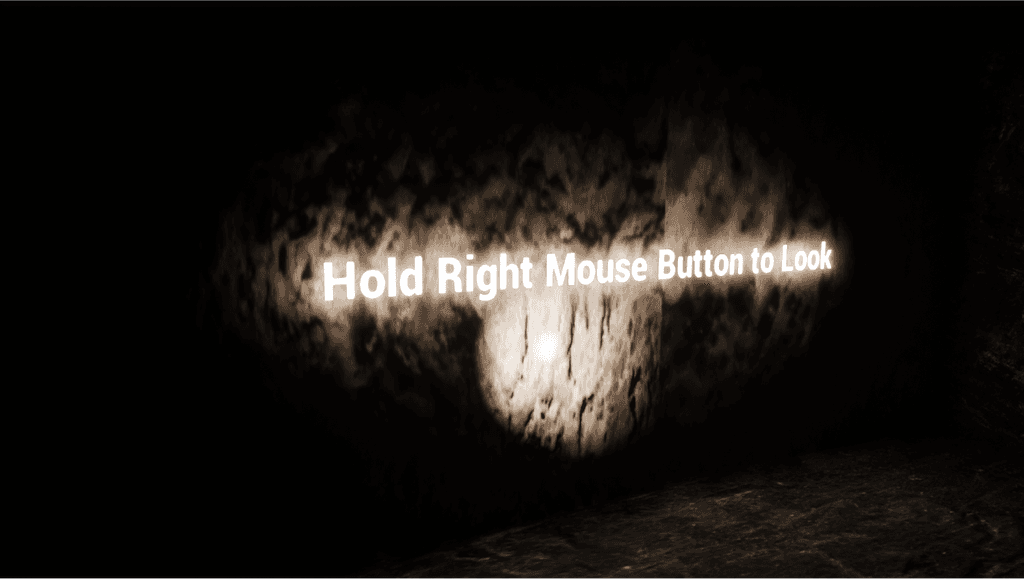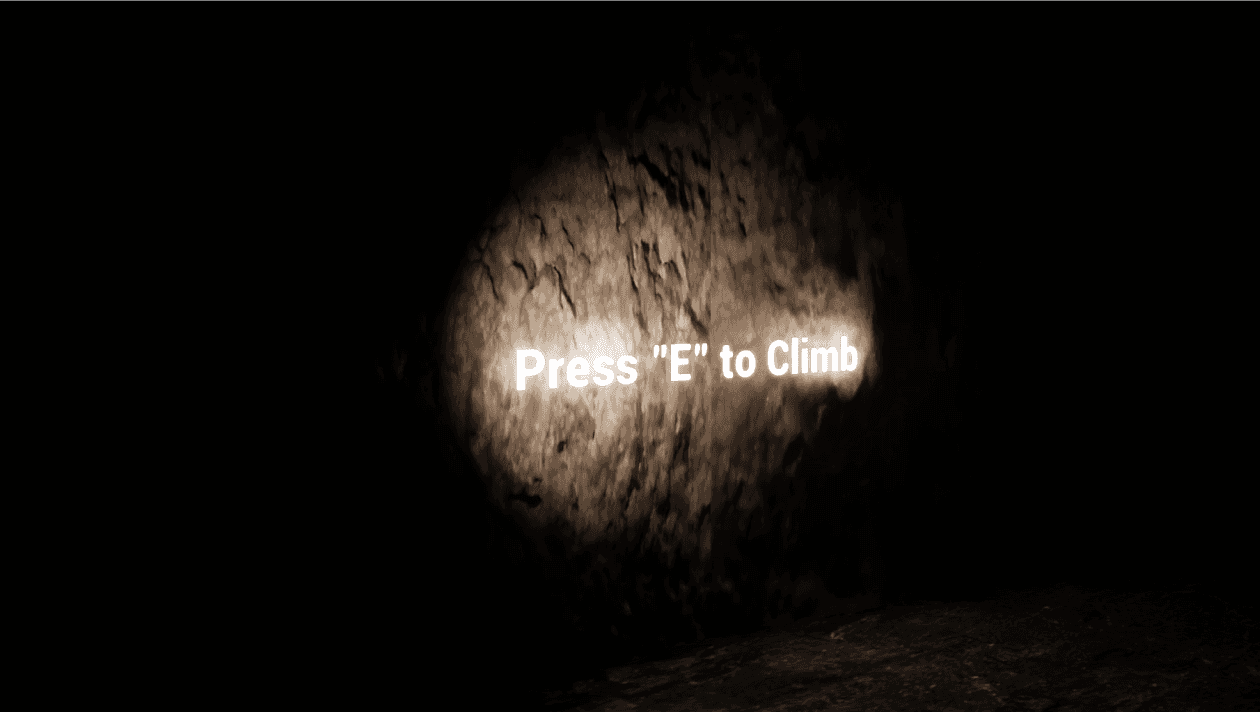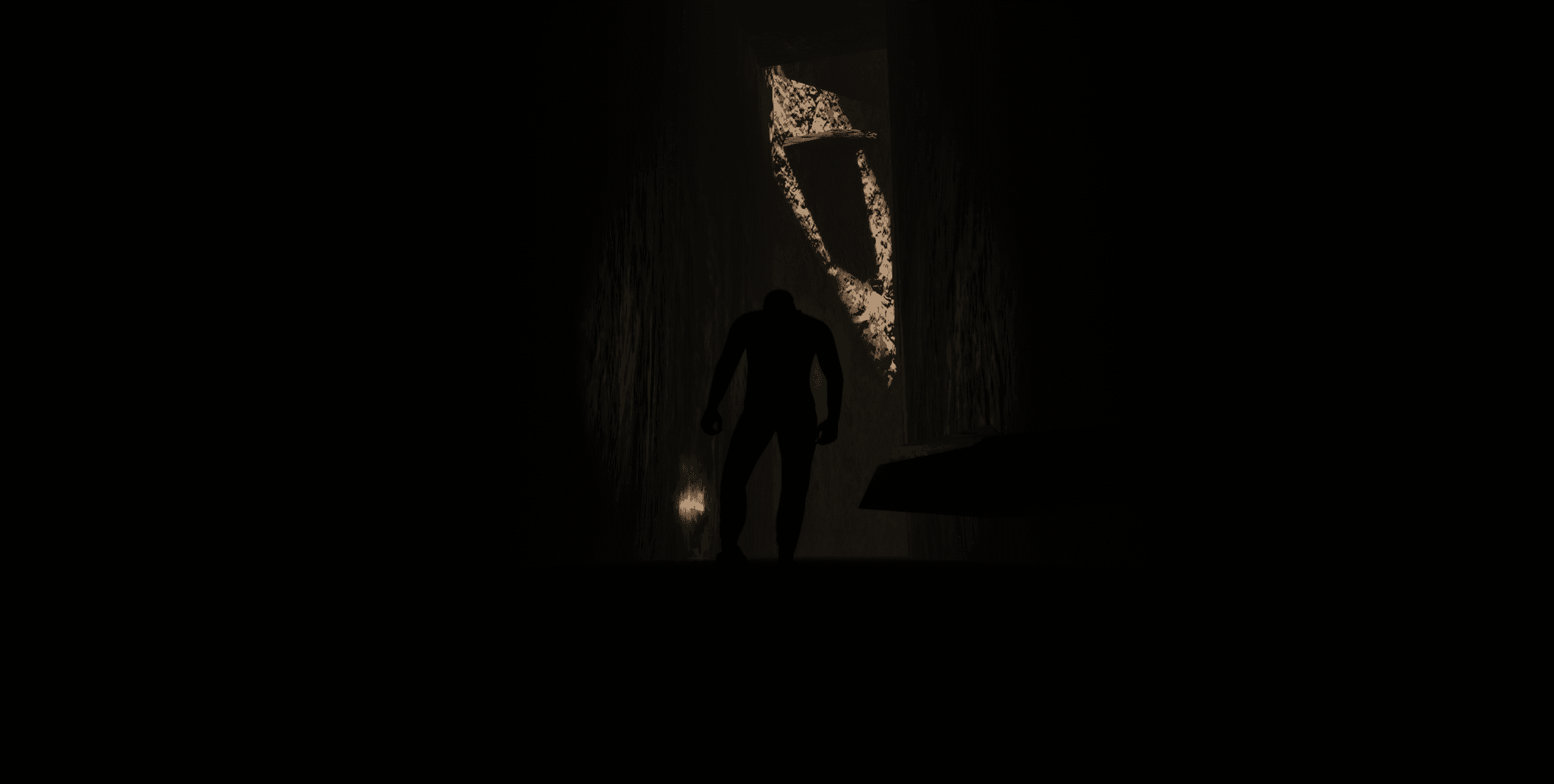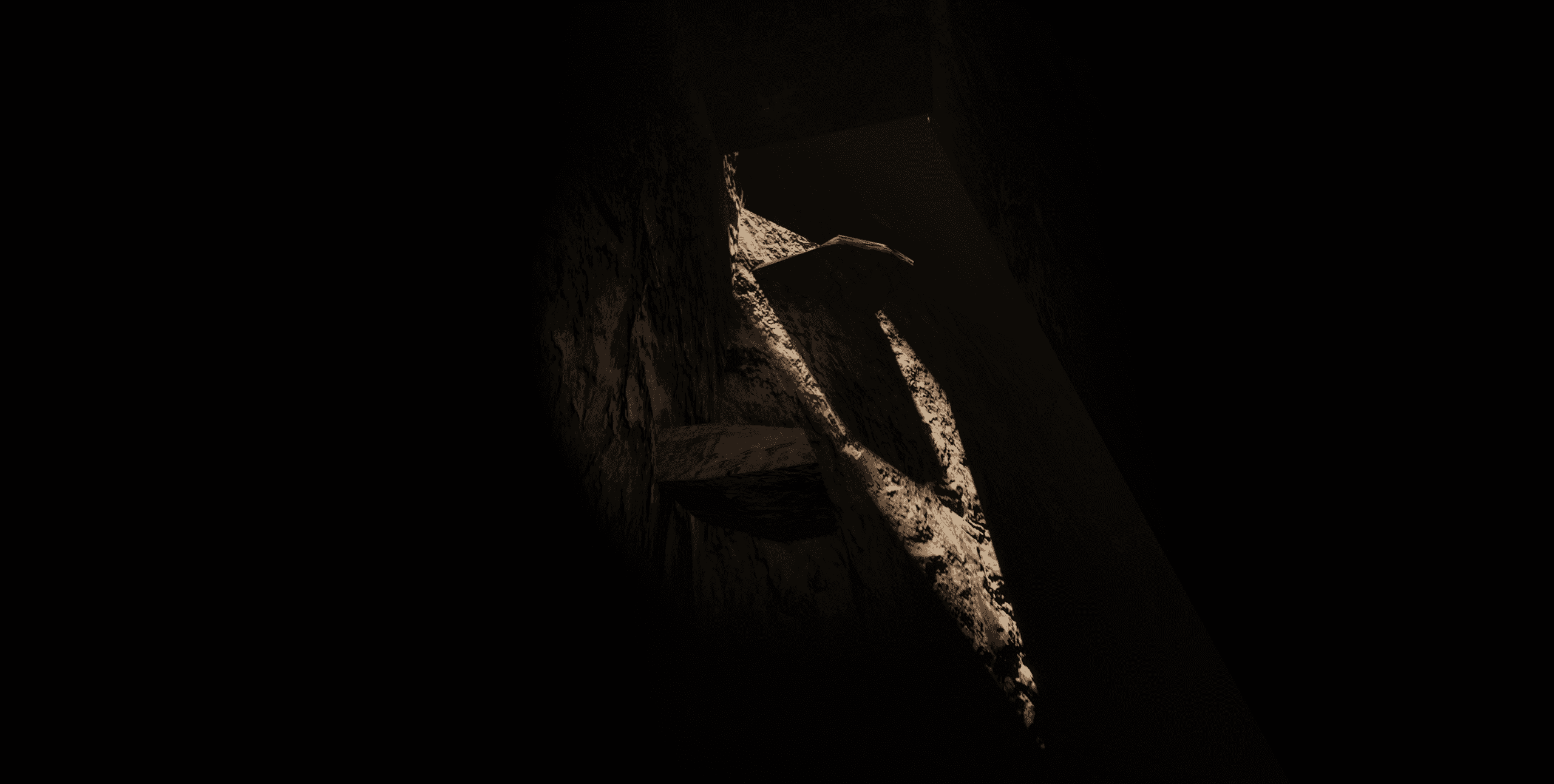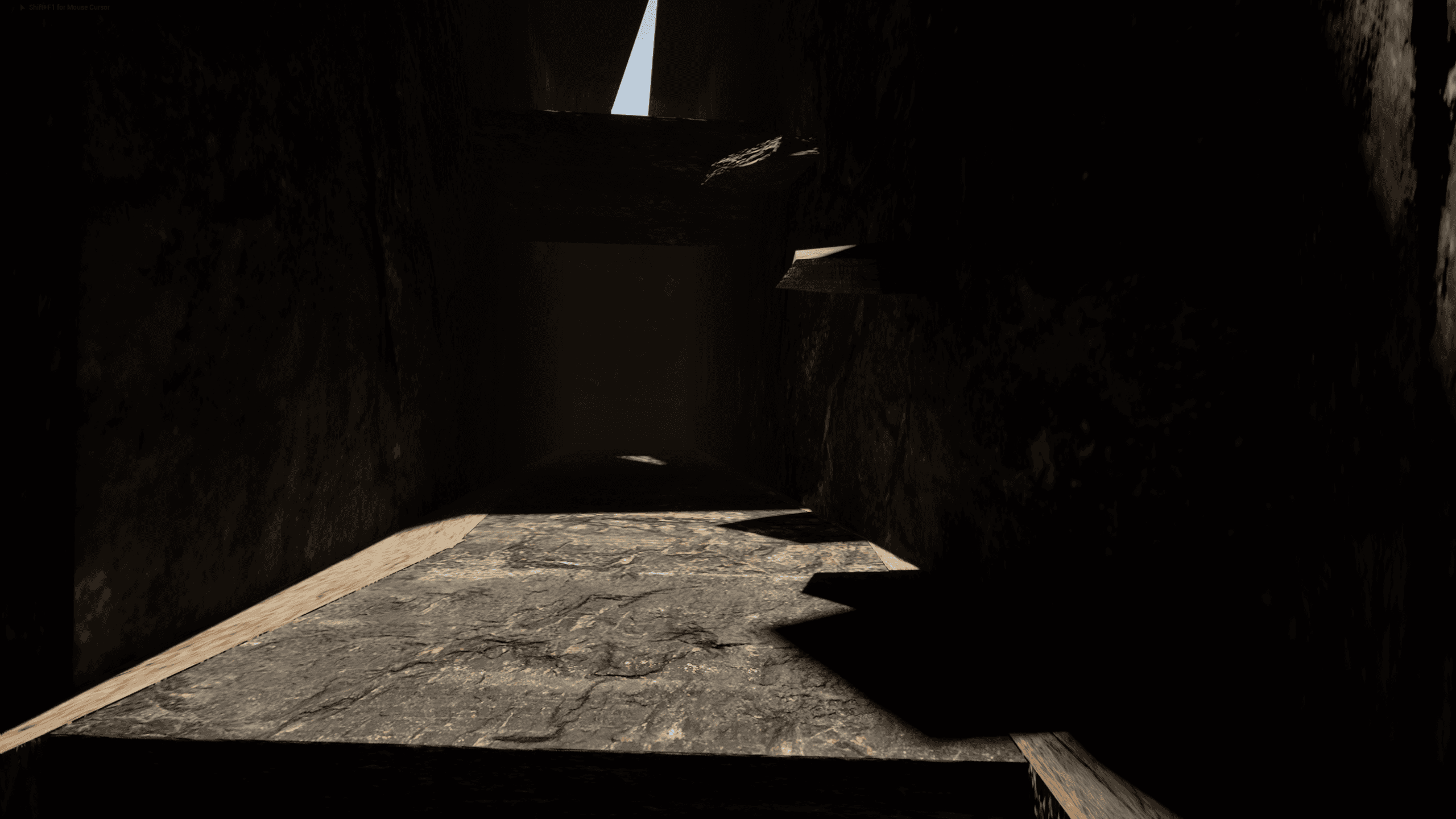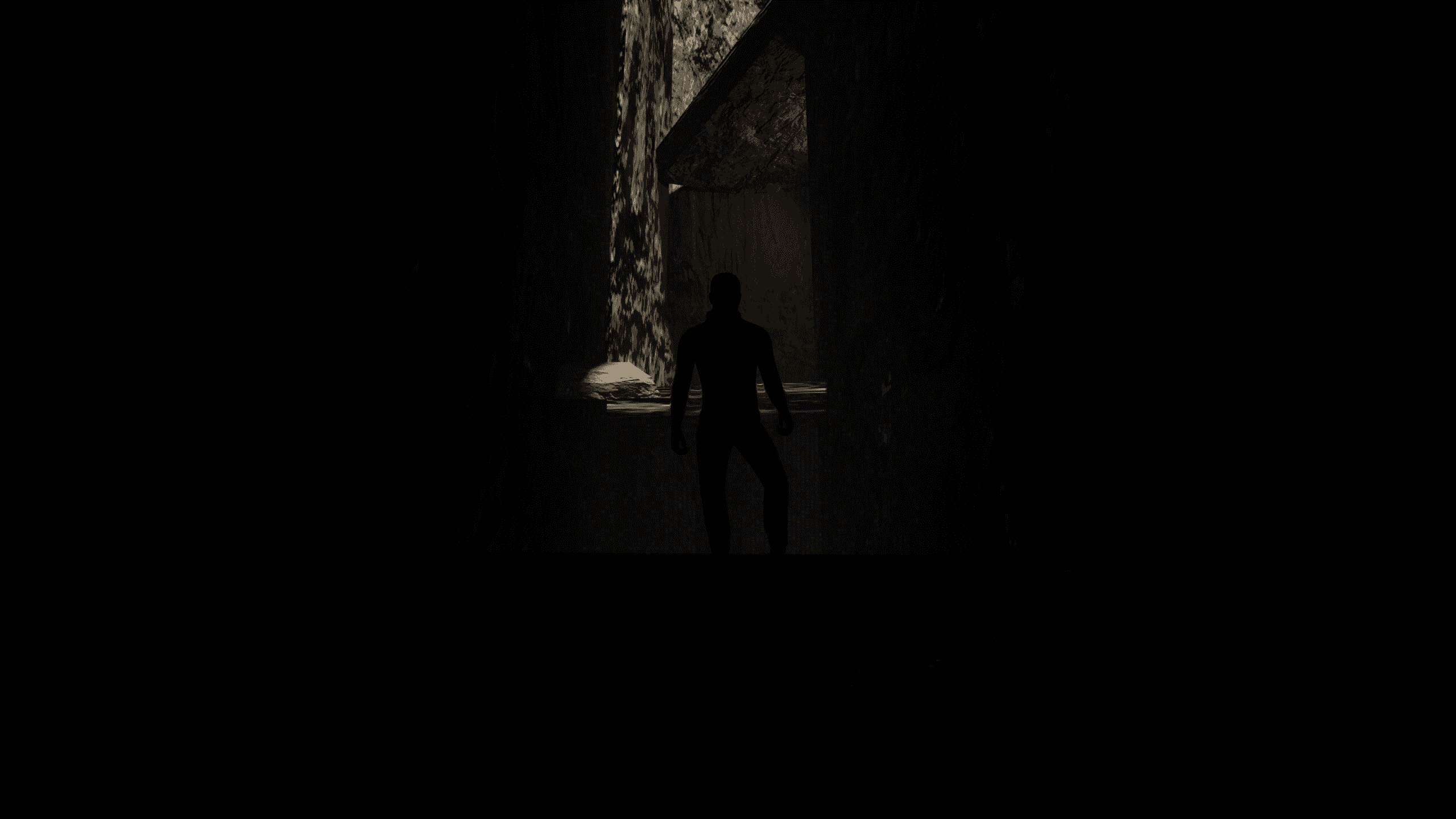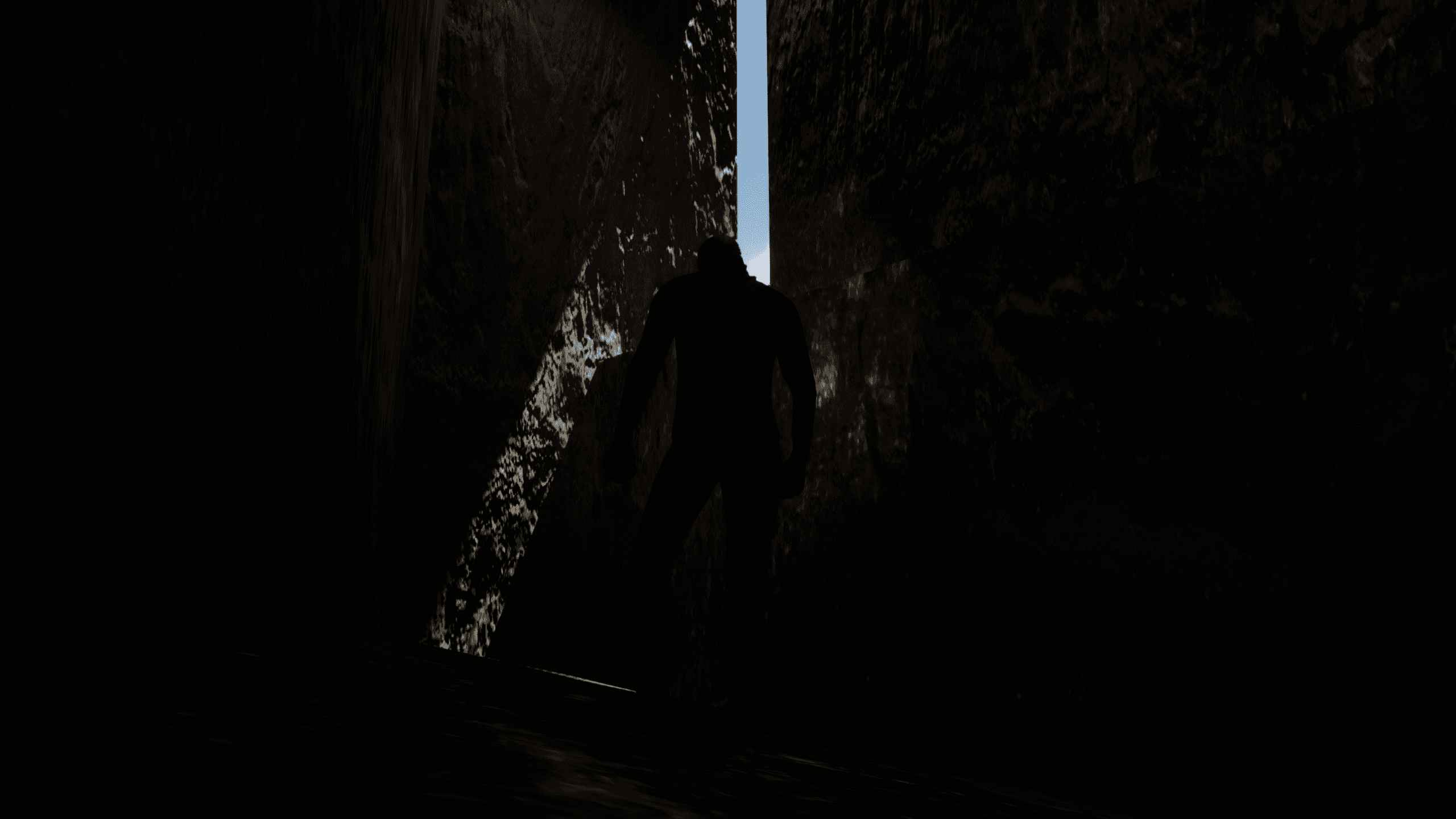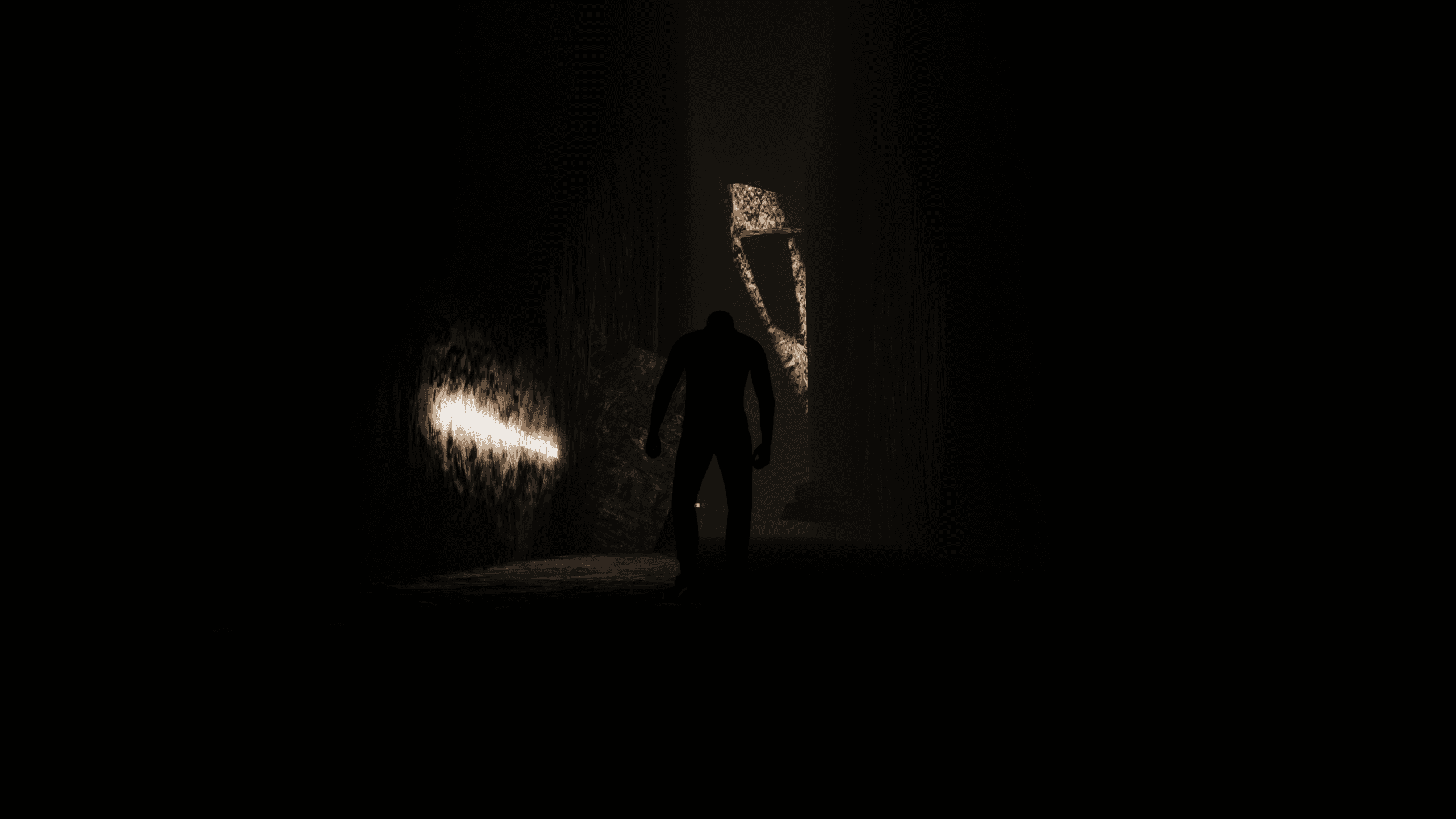Project Type
Solo
Role
Game Designer
Tools/Engine
Mixamo, Unreal Engine
Timeline
2 weeks
About this project
The primary goal of this game prototype was to evoke any emotion in players - the emotion I chose was fear, although in a non-horror context, as it is a climbing game. The core mechanic of this game is climbing and it involves navigating a dark cave environment and climbing to top to safety, thus evoking fear in the sense of isolation and the unknown. This project showcases my ability to rapidly prototype concepts without worrying about coding, by the effective use of blueprints inside Unreal engine.
Key Features
Wall climbing mechanics - with some constrains of wall angles and visibility
Guiding the player using just a single source of light, utilizing the shadows to help in navigation
Flashlight to help the players plan their way to the top and reach safety
Design Challenges
Limited animations to convey the emotion of a hurt player character, hurt climbing and jumping animations. To develop the climbing mechanic without spending too much time on scripting.
Design Approach
The core mechanic of Wall climbing was built from scratch using the help of blueprints inside of Unreal engine, its native visual scripting alternative. The game focus on guiding the players using light and shadows. A single ray of sunlight pierces the cave's depths, casting long shadows which guides you towards the next foothold. Using composition and lighting to help players navigate their way to safety. To evoke the emotion of fear, I used eerie sound design of cave ambience with bats flying/screeching, and a disturbed breathing sound of the player character.
Game Narrative
The game has a pretty straight forward narrative. A group of cavers explore an unmarked cave. One of the ropes cuts and the player falls deep down in the narrow dark cave. The player is stuck inside the cave with just a flashlight and has to climb his way to the top.
Sketches
The idea was to guide the players using light and shadows, only when they reach the checkpoints, they can see the next step forwards. By doing this, the gameplay is entertaining or else it’ll become too monotonous with just the climbing mechanic. This introduces a sense of puzzle solving into the game and the level in itself is guiding the players on how to solve it.
Building the mechanic
This project highlighted my proficiency in visual scripting (Blueprints) as a tool for rapid game design iteration. I leveraged Blueprints to quickly prototype ideas and facilitate efficient playtesting. This approach allowed me to swiftly test and refine new game mechanics, showcasing my adaptability and versatility in bringing concepts to life.
Metrics
The core mechanic of this game is Climbing and the player can climb onto straight rocks, 30 degree angles walls / adjacent walls but not anything greater than that. So all the greyboxes were designed by keeping these constrains into consideration.
Here's a short video showcasing the climbing mechanic in the metrics gym.
Learnings
Designing using lights and shadows was harder than I anticipated since making one change in the later part of the level, cascades down to the first part affecting the lights and shadows. I discovered a way to overcome this by using multiple cameras at different player perspectives to see it clearly, while I primarily made the design changes from the perspective of the light source.
This is better explained in the screenshots below.
Player Guidance
Since the game is about lights and shadows, I used in-game text with emissive material to connect this philosophy into the UI design by integrating it into the level design.
Final Screenshots
The prototype is greyboxed using simple cubes with rock textures to improve player immersion. I wanted the players to feel like they are actually stuck in a very tight space, so the dark rock textures helped in conveying that emotion clearly. The screenshots below are in order of appearance in the gameplay progression.
